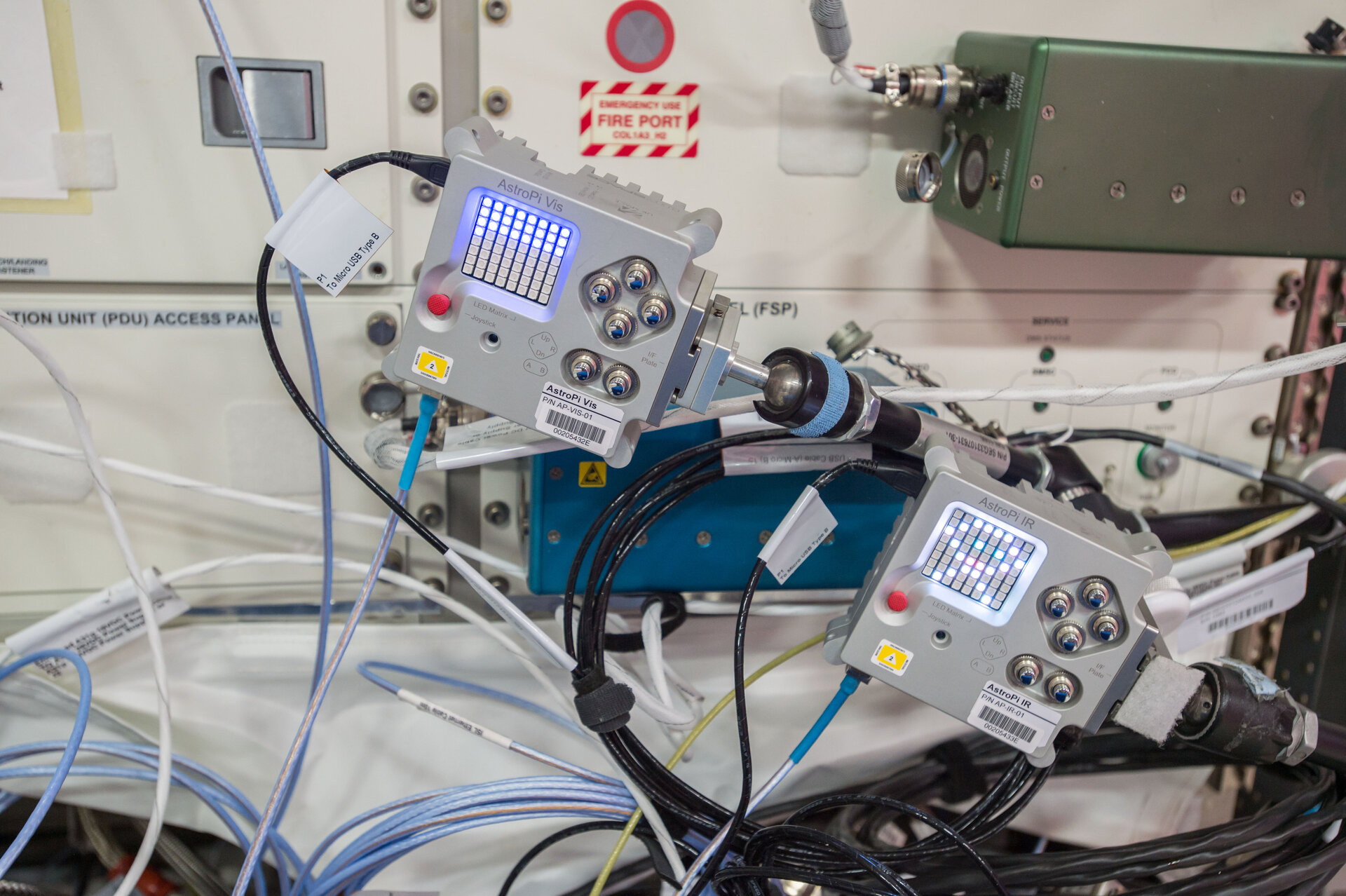Astro Pi: Mission Space Lab - 208 teams from 22 countries achieve flight status!
After a long process of testing and judging your experiments, ESA and the Raspberry Pi Foundation are delighted to announce that 208 teams in 22 countries have been granted ‘flight status’ and will progress onto Phase 3 (Deploy) and Phase 4 (Analyse) of Mission Space Lab 2019/2020.
The teams' experiments were selected based on their experiment idea, the quality of their code, and the feasibility of their project - with special attention paid to comments included in their code. The selected programs have each been tested on the ground for 3 hours, in order to ensure that the experiments will run without errors on board the ISS.
127 teams from Life on Earth and 81 teams from Life in Space have progressed. These teams are made up of 802 young people, with 66% male participants and 32% female participants, and an average age of 15. Spain (29) has the most teams progressing to the next round, closely followed by Italy (22), the United Kingdom (19) and Canada (17).
In the coming weeks, the experiments will be deployed to the ISS and overseen by an astronaut on board. The teams will then receive the data for them to analyse and write a short report that will be judged by ESA Education and Raspberry Pi Foundation Astro Pi experts.
Due to Coronavirus, the amount of time given to each team to write their report has been extended. More details will be provided to each team when they are sent their experiment data. After reviewing the entries, ESA and the Raspberry Pi Foundation will select the 10 best reports and announce those winning teams of the challenge who will receive a special prize!
ESA and the Raspberry Pi Foundation would like to thank everyone who has taken part in Mission Space Lab this year - and special congratulations to those teams who have achieved flight status. The hard work and dedication required to make it this far in the challenge is inspiring and you should all be very proud of yourselves.
If your team has not achieved flight status this time, we hope you have enjoyed learning from this experience and come back with a revised experiment idea next year for the Mission Space Lab Challenge 2020-2021. We know you can do it and we’d love to welcome you back!
Now the most exciting phase of Mission Space Lab begins - deployment!
If you have any questions regarding the European Astro Pi Challenge, send them to astropi@esa.int.


